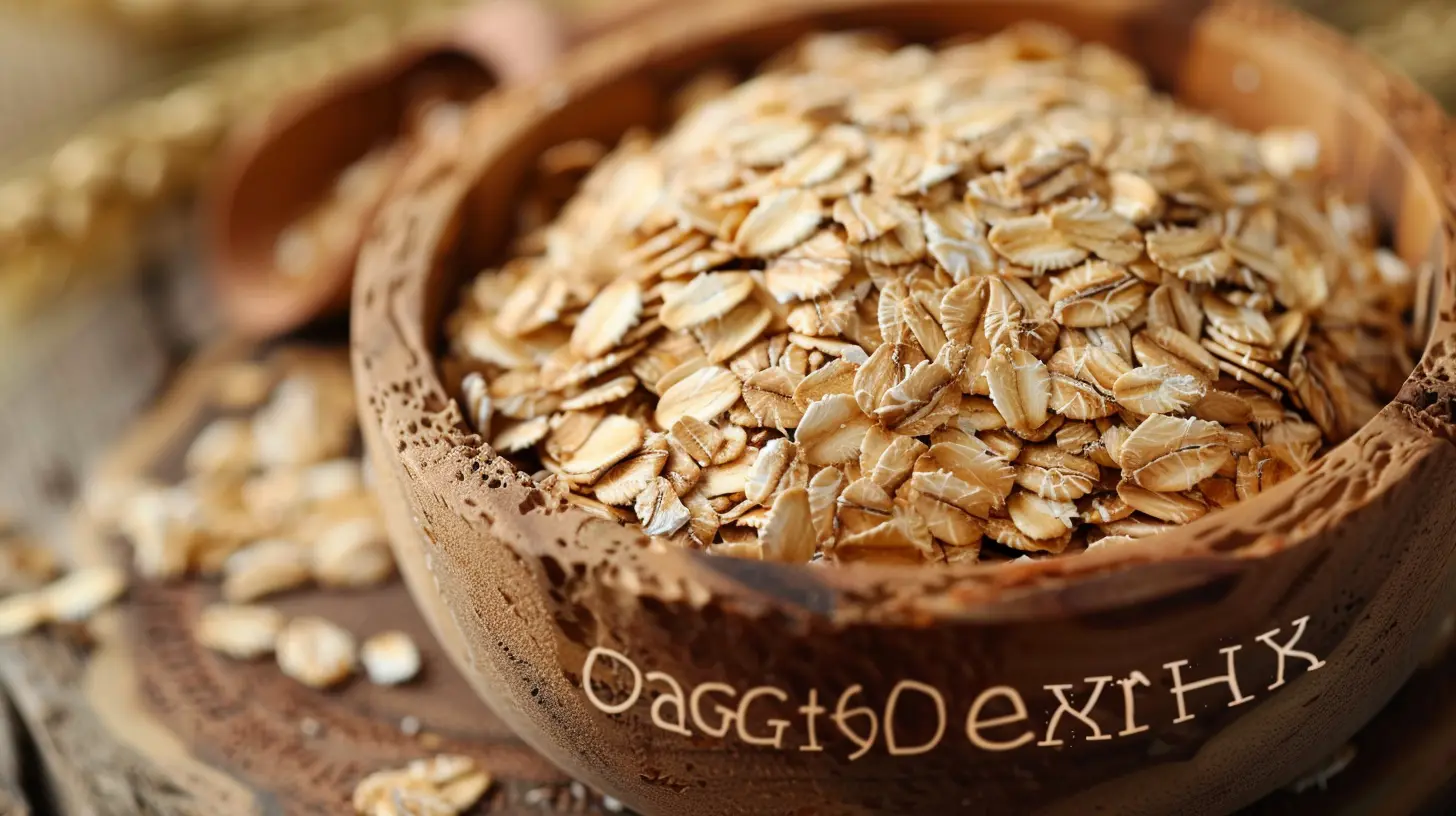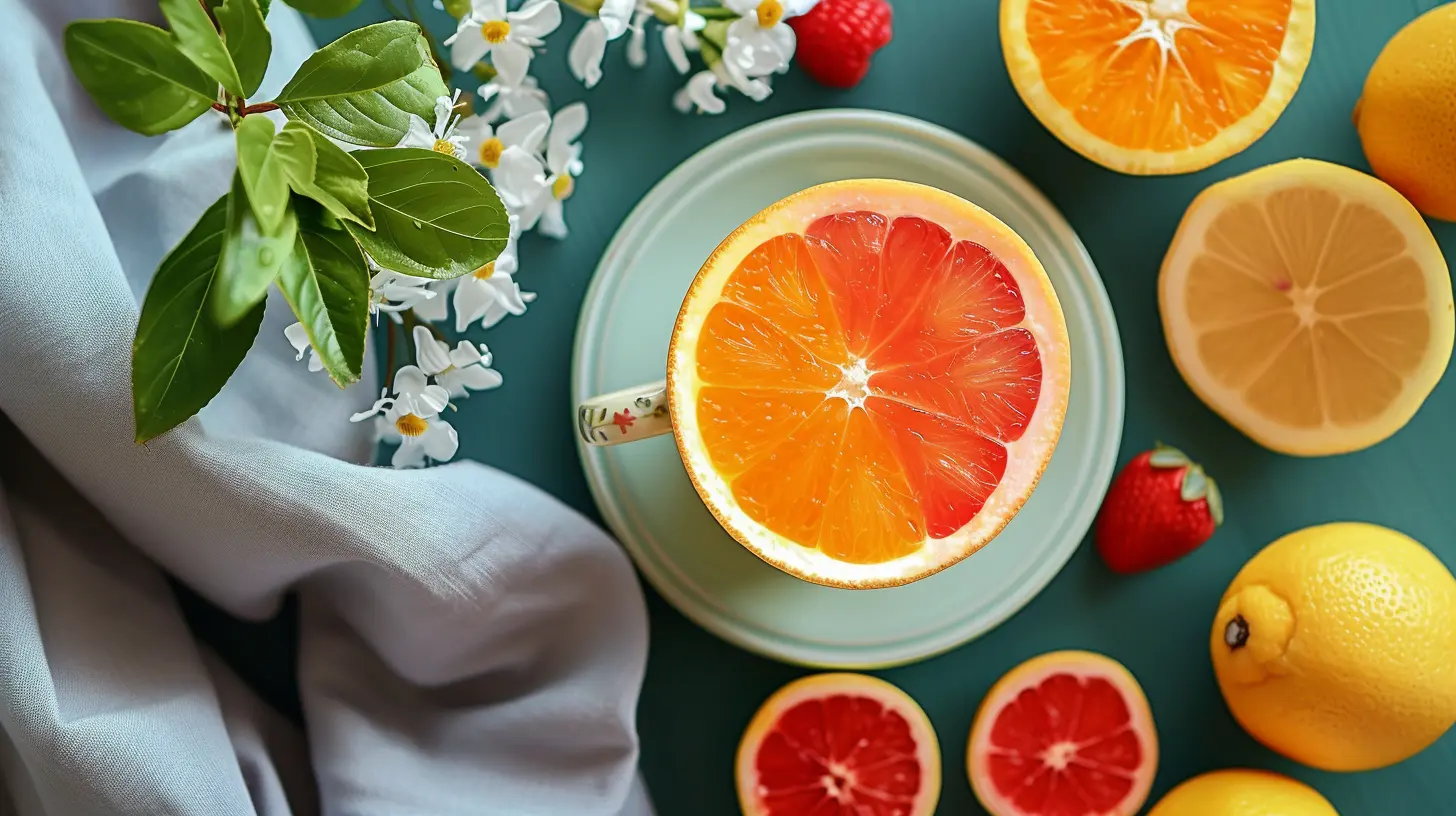Can Organic Foods Improve Your Sleep Quality?
24 September 2025
Alright, let’s get real for a second.
You’ve tried counting sheep. You’ve downloaded every sleep app known to humankind. You’ve even suffered through a glass of warm milk that tasted like sadness. And still… you find yourself lying wide-eyed at 2 AM, wondering if you’ll ever sleep like a baby again.
Well, here’s a new theory to chew on—can switching to organic food actually help you sleep better? Could your grocery choices be the secret sauce to getting those elusive eight hours of shut-eye?
Let’s dive fork-first into this delicious investigation.
What the Heck is Organic Food, Anyway?
Before we go hyping it up as the MVP of good sleep, let’s define what we’re even talking about.Organic food is grown without synthetic pesticides, fertilizers, GMOs, antibiotics, or growth hormones. Think of it like nature’s clean-eating club—just veggies, fruits, grains, dairy, and meats raised the old-fashioned way (you know, before Frankenstein got into farming).
Basically, it’s the food version of that friend who does yoga, drinks herbal tea, and somehow always looks like they just got out of a spa.
But can that friend help you sleep? Maybe.
The Gut-Sleep Connection: Your Stomach is Basically Your Roommate
Here’s something people don’t talk about enough—your gut is like your messy-but-lovable college roommate. It talks nonstop, has a weird influence on your mood, and occasionally keeps you up all night.Your gut microbiome (that’s the massive community of bacteria living in your digestive tract—yes, you’re never really alone) is directly tied to how well you sleep.
Studies show that gut health is linked to sleep quality, mood regulation, and even production of melatonin—the sleepy-time hormone.
So how does organic food come in? Well, because it’s often richer in nutrients and free of gut-destroying pesticides, organic food may help your microbiome thrive like it's at a five-star resort. Better gut = better zzz’s.
Bye-Bye Pesticides, Hello Pillow Time
Non-organic produce is often doused in synthetic pesticides. These chemicals are meant to kill bugs, but they're not exactly spa treatments for your neurons.Fun fact (or not-so-fun): some pesticides have been linked to disrupted sleep patterns, hormone imbalances, and even anxiety. And let’s be real—anxiety and sleep go together like pineapple and pizza. (Some love it, but science says… maybe not.)
Organic foods have been shown to contain fewer pesticide residues. So if you’re struggling to wind down at night, reducing chemical exposure might help your body chill out enough to hit snooze.
Magnesium: The Mineral MVP of Sleep
Let’s play a game. Raise your hand if you’ve ever heard of magnesium.Now raise your hand if you know it helps you sleep. (Don’t worry, I didn’t know either.)
Magnesium is a mighty mineral that helps regulate melatonin production, reduce stress, and relax muscles—all things that make it easier to drift off into dreamland.
Leafy greens, bananas, seeds, and nuts are all natural sources of magnesium. And guess what? Organic produce has been shown to contain higher mineral content, including magnesium. Boom. More reason to grab that organic spinach.
Hormone-Free Milk = Less Moo-d Swinging?
Okay, so here’s a weird but important one.Conventional dairy products can contain residues of growth hormones and antibiotics, which may mess with your own hormones. And if your hormones are throwing a tantrum, your sleep quality can take a serious nosedive.
Organic dairy is hormone-free by law. So if you’re into your milk, cheese, or late-night ice cream snacks (no judgment), going organic might help keep your body’s nighttime rhythms running smoother.
Because let’s be honest—there are enough things messing with our sleep. We don’t need angry hormones joining the party.
Say “No Thanks” to Hidden Sugars and Fake Additives
Ever had a “healthy” snack that somehow kept you bouncing off the walls like a caffeinated squirrel? Yeah, me too.Many non-organic processed foods come loaded with hidden sugars, artificial colors, preservatives, and flavorings. These ingredients can spike your blood sugar and jack up your energy levels at the absolute worst time—bedtime.
On the flip side, many organic products skip or minimize those unnecessary extras. That means fewer nighttime sugar rushes and more peaceful pillow time.
And hey, no offense to neon orange cheese puffs, but you probably don’t want them being the last thing your body digests before lights out.
Tryptophan: The OG Sleepytime Compound
Let’s talk turkey—literally.Tryptophan is an amino acid that helps the body produce serotonin and melatonin. Turkey is famous for containing it (hence the post-Thanksgiving comas), but it’s also found in eggs, dairy, seeds, and nuts.
Organic animal products may offer cleaner sources of tryptophan, without the added hormones and weirdness of conventional processing. Cleaner food = cleaner snooze vibes.
So yeah, maybe eating smarter (think: organic tryptophan-rich foods) is your body's way of tucking itself in at night.
Better Food Ethics = Better Peace of Mind
Let’s not ignore the mental side of sleep. If you’re constantly stressed, anxious, or twitchy (we’ve all been there), it’s going to affect your ability to rest.For many people, eating organic isn’t just a health choice—it’s an ethical one. They feel good knowing their food wasn't grown with harmful chemicals or pumped full of hormones. For some, there’s something restful about knowing you’re doing good for your body and the planet.
And peace of mind is a powerful sleep aid, don’t you think?
Organic Food Isn’t Magic—But It’s a Pretty Darn Good Start
Let’s clear the air. Eating organic won’t suddenly make you sleep like a koala (those adorable furballs sleep 18–22 hours a day—jealous?). It's not NyQuil. It's not hypnosis. It's not a miracle.But... it’s definitely a solid addition to your overall sleep plan.
It works by supporting your body’s natural systems—gut health, hormone balance, mineral intake, and stress reduction—all of which are crucial to high-quality sleep.
Think of it as building a better sleep foundation. Like upgrading from a couch to a Tempur-Pedic.
So, What Organic Foods Should You Actually Try?
Good question. Here’s your bedtime shopping list:🥬 Organic Leafy Greens
Spinach, kale, and Swiss chard are magnesium goldmines that help relax your muscles and nerves.🍌 Organic Bananas
Packed with magnesium and B6, bananas help convert tryptophan into serotonin. One step closer to dreamland.🥛 Organic Dairy
Opt for hormone-free milk, yogurt, and cheese. Bonus: they’re tryptophan-rich and comforting.🧀 Organic Eggs
These protein powerhouses are a great source of tryptophan and B-vitamins. Omelet at dinner? Yes, please.🌰 Organic Nuts & Seeds
Almonds, walnuts, flaxseeds—basically Nature's sleeping pills. Just, you know, crunchier.🍗 Organic Poultry
Turkey and chicken (especially when organic) give you that sweet, sweet tryptophan hit without the added junk.☕ Organic Herbal Teas
Chamomile, valerian root, or lavender teas soothe your nervous system and ease you into sleep like a lullaby in a cup.Tips to Maximize Sleep With Your Organic Diet
Even organic food can’t work miracles if you’re bingeing chocolate at midnight. Here’s how to make your organic choices work for your sleep life:- Eat earlier: Try to eat dinner at least 2-3 hours before bed to give your body time to digest.
- Limit caffeine: Organic or not, a triple espresso at 5 PM is gonna haunt you later.
- Hydrate, but not too late: Staying hydrated helps regulate sleep—but chugging water at bedtime = 3 AM bathroom trip.
- Balance your plate: Include complex carbs, lean proteins, and healthy fats to create steady blood sugar levels. No energy crashes—or spikes.
Final Thoughts: Is Organic the Key to Sweeter Dreams?
Here’s where we land.Eating organic isn’t a magic sleeping potion, but it’s a fantastic ally when it comes to prioritizing your health—and by extension, your ZZZs.
Think about it: less toxic junk, more nutrition, better gut health, cleaner hormones, and reduced stress. Sounds like a no-brainer, right?
So if you’re staring at the ceiling at night wondering why sleep has ghosted you, maybe it’s time to let organic foods slide into your DMs.
You’ve got nothing to lose—except dark circles, cranky mornings, and that weird relationship with your snooze button.
Sweet dreams, my organic-curious friend.
all images in this post were generated using AI tools
Category:
Organic FoodsAuthor:

Tiffany Foster
Discussion
rate this article
1 comments
Halle Soto
Dreaming of kale nights!
October 6, 2025 at 4:42 AM

Tiffany Foster
Thanks for your comment! Kale is packed with nutrients that can support better sleep. Sweet dreams!


